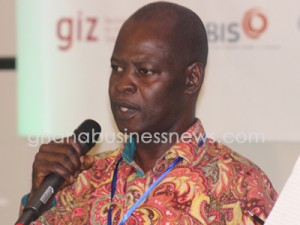It’s risky funding free SHS solely with oil money – PIAC

Dr Steve Manteaw, Chairman of the Public Interest and Accountability Committee (PIAC), has said it is risky for Government to rely solely on oil revenue to fund the free Senior High School (SHS) programme.
He said the country must diversify its sources of funding for the free SHS programme due to the instability in the oil prices on the World market.
For instance, in 2015 and 2016 the price of oil reached its lowest ebb of $49.49 and$40.68 per barrel respectively as against $96.29 per barrel in 2014, a clear indication that oil money must not be the only dependant of the policy.
The Government of Ghana (GOG) received a total of $978.01M in revenue in 2014 but the figure dropped drastically to $396.17M and $247.18M in 2015 and 2016 respectively.
According to him, the free SHS programme would suffer heavily and government would struggle to fund the programme in the event of drastic oil price reduction, if other sources of funding were not secured.
Dr Manteaw gave the caution at a Regional Public Forum in Cape Coast on the management of Ghana’s petroleum revenues between 2011 and 2017 on Tuesday.
The forum, which was attended by key stakeholders such as representatives of various assemblies, religious bodies, civil society organisations (NGOs), traditional authorities and the media, was to provide a platform for participants to discuss and make inputs into the management and disbursement of the petroleum revenue.
Dr Manteaw said oil revenue formed a small portion of the total revenue of the country and underscored the need to focus on other sources of revenue, adding that “we cannot solve or rely solely on oil money to solve all our problems”.
He said it was important that the country’s oil and mineral resources were channelled into areas that would benefit Ghanaians in a more productive way.
According to the PIAC Chairman, attempts had been made to use petroleum revenues to tackle many national problems at the same time, which had weakened the potential impact of the resource on the socio-economic development of Ghana.
He noted that for the years under review, oil revenues had been misappropriated, non-judiciously used and had not given the country value for money.
In this regard, he said there ought to be a properly defined guideline in the selection of the priority areas for investment.
He added that few legacy projects should be identified and supported by the Annual Budget Funding Amount (ABFA).
He also implored government to mention all projects being funded with oil money in its 2019 budget for the purposes of accountability.
Dr Manteaw said PIAC would continue to monitor and ensure compliance of the Petroleum Revenue Management Act (PRMA) by government and relevant institutions in the management and use of petroleum resources and provide a platform for public debate and individual assessments.
He expressed the readiness of PIAC to collaborate with other accountability institutions of the state to strictly monitor the utilisation of petroleum revenue and prosecute persons found culpable of misappropriation when the need arise.
Participants at the forum advocated for the Petroleum Revenue Management Act (PRMA) to be amended to give PIAC a prosecutorial powers to prosecute those found to have misappropriated oil revenue and other acts of corruption.
They were also of the view that a similar accountable committee be established to oversee the total revenue of the country to ensure judicious use of revenue generated in the country.
Source: GNA
